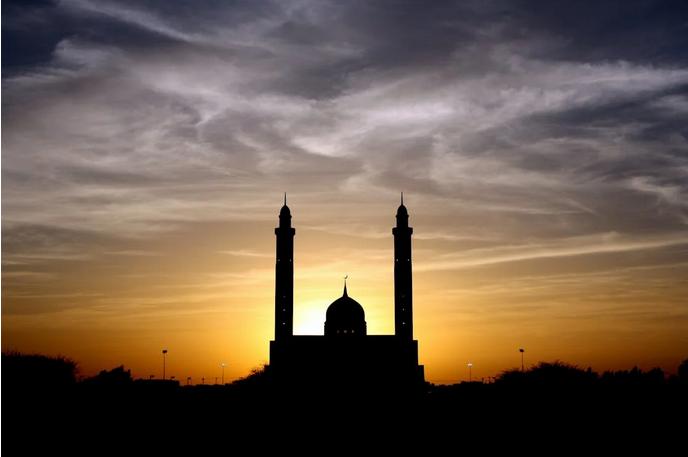ആയത് അൽ-കുർസി: ആത്മീയ പ്രാധാന്യം

ആയത് അൽ-കുർസി: ആത്മീയ പ്രാധാന്യം
ആമുഖം
ആയത് അൽ-കുർസി (അറബി: آية الكرسي) ഖുര്ആനിലെ ഏറ്റവും പ്രശസ്തവും മഹത്വമുള്ളതുമായ ആയത്തുകളിൽ ഒന്നാണ്. ഇത് സൂറത്ത് അൽ-ബഖറ (2:255) എന്ന അധ്യായത്തിലാണ് ഉൾപ്പെട്ടിരിക്കുന്നത്. “ആയത് അൽ-കുർസി” എന്ന പേര് വാചകാർത്ഥത്തിൽ “സിംഹാസന ആയത്ത്” എന്നാണ് അർഥമാക്കുന്നത്. ഇസ്ലാമിക വിശ്വാസത്തിലും ആത്മീയതയിലും ആരാധനാപരമായ ജീവിതത്തിലും ഈ ആയത്തിന് അതീവ പ്രധാനപ്പെട്ട സ്ഥാനമുണ്ട്. സംരക്ഷണത്തിനും അനുഗ്രഹങ്ങൾക്കും ആത്മീയ ശക്തിക്കും വേണ്ടി പലപ്പോഴും ചൊല്ലപ്പെടുന്ന ഈ ആയത്ത്, അല്ലാഹുവിന്റെ പരമാധികാരവും മഹത്വവും ആഴത്തിലുള്ള ദാർശനിക അർഥത്തോടുകൂടി അവതരിപ്പിക്കുന്നതിനാൽ ലോകമെമ്പാടുമുള്ള മുസ്ലിംകൾ അതിനെ അതീവ ആദരവോടെ കാണുന്നു.
ആയത് അൽ-കുർസിയുടെ പ്രാധാന്യം പൂർണ്ണമായി മനസ്സിലാക്കുന്നതിനായി അതിന്റെ ഭാഷാപരമായ, തത്വചിന്താപരമായ, ആത്മീയമായ വശങ്ങൾ പഠിക്കുന്നത് അനിവാര്യമാണ്. ഈ ലേഖനം ആയത് അൽ-കുർസിയുടെ അർഥം, ഇസ്ലാമിലെ അതിന്റെ പ്രാധാന്യം, അതിൽ അടങ്ങിയ ആത്മീയത എന്നിവയെക്കുറിച്ചുള്ള സമഗ്രമായ ധാരണ നൽകുകയാണ് ലക്ഷ്യമിടുന്നത്.
1. ആയത് അൽ-കുർസിയുടെ പാഠം
ആയത് അൽ-കുർസി ഖുര്ആനിലെ സൂറത്ത് അൽ-ബഖറ (2:255) എന്ന അധ്യായത്തിലാണ്. ആയത്ത് ഇപ്രകാരമാണ്:
“അല്ലാഹു – അവനല്ലാതെ യാതൊരു ആരാധ്യനുമില്ല. അവൻ എന്നേക്കും ജീവിച്ചിരിക്കുന്നവനും എല്ലാറ്റിനെയും നിലനിർത്തുന്നവനുമാകുന്നു. ഉറക്കച്ചടവോ ഉറക്കമോ അവനെ ബാധിക്കുന്നില്ല. ആകാശങ്ങളിലും ഭൂമിയിലും ഉള്ളതെല്ലാം അവനുടേതാണ്. അവന്റെ അനുവാദമില്ലാതെ അവന്റെ സന്നിധിയിൽ ശുപാർശ ചെയ്യാൻ ആര്ക്കാണ് കഴിയുക? അവരുടെ മുമ്പിലുള്ളതും പിന്നിലുള്ളതും അവൻ അറിയുന്നു. അവൻ ഇച്ഛിക്കുന്നതൊഴിച്ചാൽ അവന്റെ അറിവിൽ നിന്ന് ഒന്നും അവർ ഉൾക്കൊള്ളുന്നില്ല. അവന്റെ കുർസി ആകാശങ്ങളെയും ഭൂമിയെയും വ്യാപിച്ചിരിക്കുന്നു. അവയെ സംരക്ഷിക്കുന്നത് അവനെ ക്ഷീണിപ്പിക്കുന്നില്ല. അവൻ അത്യുന്നതനും അതിമഹത്ത്വമുള്ളവനുമാകുന്നു.”
(ഖുര്ആൻ, 2:255)
ഈ ആയത്ത് അല്ലാഹുവിന്റെ മഹത്വവും സർവാധികാരവും ഉയർത്തിക്കാട്ടുന്ന നിരവധി ഘടകങ്ങൾ ഉൾക്കൊള്ളുന്നു. ഇതിന്റെ പൂർണ്ണമായ പ്രാധാന്യം മനസ്സിലാക്കാൻ ഓരോ വാചകത്തിന്റെ അർഥവും അതിന്റെ തത്വചിന്താപരമായ സൂചനകളും പരിശോധിക്കേണ്ടതുണ്ട്.
2. ആയത് അൽ-കുർസിയുടെ ഭാഷാപരവും വാചകാർത്ഥപരവുമായ അർഥം
“കുർസി” എന്ന പദം സാധാരണയായി “സിംഹാസനം” എന്നാണ് വിവർത്തനം ചെയ്യപ്പെടുന്നത്. എന്നാൽ അതിന്റെ കൃത്യമായ അർഥം പണ്ഡിതന്മാർക്കിടയിൽ ചർച്ചയായ വിഷയമാണ്. “കുർസി” ഒരു യഥാർത്ഥ സിംഹാസനത്തെ സൂചിപ്പിക്കാമെങ്കിലും, അതിനേക്കാൾ വ്യാപകമായി അല്ലാഹുവിന്റെ ദിവ്യാധികാരത്തെയും സൃഷ്ടികളിലേക്കുള്ള സമ്പൂർണ്ണ നിയന്ത്രണത്തെയും സൂചിപ്പിക്കുന്നതായും മനസ്സിലാക്കപ്പെടുന്നു. അല്ലാഹുവിന്റെ സർവവ്യാപകവും എല്ലാം ഉൾക്കൊള്ളുന്നതുമായ ശക്തിയുടെ പ്രതീകമായാണ് പല പണ്ഡിതന്മാരും “കുർസി”യെ വ്യാഖ്യാനിക്കുന്നത്. ഇത് അല്ലാഹുവിന്റെ അതീതതയും സമീപതയും ഒരുപോലെ സൂചിപ്പിക്കുന്നതായും കരുതപ്പെടുന്നു.
ആയത്ത് ആരംഭിക്കുന്നത് അല്ലാഹുവിന്റെ ഏകദൈവത്വത്തെ ശക്തമായി പ്രഖ്യാപിച്ചുകൊണ്ടാണ്: “അല്ലാഹു – അവനല്ലാതെ ആരാധ്യനില്ല.” ഇത് ശുദ്ധമായ ഏകദൈവ വിശ്വാസത്തിന്റെ (തൗഹീദ്) പ്രഖ്യാപനമാണ്. സർവശക്തിയും സർവജ്ഞതയും സർവനിയന്ത്രണവും അല്ലാഹുവിനേ മാത്രമാണെന്ന സത്യമാണ് ഇത് ഉറപ്പുവരുത്തുന്നത്. തുടർന്ന് അല്ലാഹുവിനെ “എന്നേക്കും ജീവിച്ചിരിക്കുന്നവൻ” (അൽ-ഹയ്യ്) എന്നും “എല്ലാറ്റിനെയും നിലനിർത്തുന്നവൻ” (അൽ-ഖയ്യൂം) എന്നും വിശേഷിപ്പിക്കുന്നു. അല്ലാഹുവിന്റെ ശാശ്വതതയും സ്വയംപര്യാപ്തതയും ഇതിലൂടെ ഊന്നിപ്പറയപ്പെടുന്നു.
“ഉറക്കച്ചടവോ ഉറക്കമോ അവനെ ബാധിക്കുന്നില്ല” എന്ന വാചകം, മനുഷ്യരെയും മറ്റ് സൃഷ്ടികളെയും ബാധിക്കുന്ന പരിമിതികളിൽ നിന്ന് അല്ലാഹു പൂർണ്ണമായും വിമുക്തനാണെന്നത് വ്യക്തമാക്കുന്നു. ഇതിലൂടെ ആയത്തിന്റെ ശേഷിക്കുന്ന ഭാഗങ്ങൾക്ക് അടിത്തറയിടപ്പെടുന്നു.
3. തത്വചിന്താപരമായ സൂചനകൾ
ആയത് അൽ-കുർസി ഇസ്ലാമിക തത്വചിന്തയിലെ പ്രധാനപ്പെട്ട നിരവധി ആശയങ്ങളെ സ്പർശിക്കുന്നു.
a. അല്ലാഹുവിന്റെ ഏകത്വവും പരമാധികാരവും
“അവനല്ലാതെ ആരാധ്യനില്ല” എന്ന വാചകം, ഇസ്ലാമിന്റെ അടിസ്ഥാന സിദ്ധാന്തമായ തൗഹീദിനെ ശക്തമായി പ്രഖ്യാപിക്കുന്നു. അല്ലാഹു മാത്രമാണ് സർവ്വലോകങ്ങളുടെയും സ്രഷ്ടാവും സംരക്ഷകനും ഭരണാധികാരിയും.
b. അല്ലാഹുവിന്റെ അറിവ്
“അവരുടെ മുമ്പിലുള്ളതും പിന്നിലുള്ളതും അവൻ അറിയുന്നു” എന്ന വാചകം, അല്ലാഹുവിന്റെ അറിവ് അനന്തവും സമ്പൂർണ്ണവുമാണെന്ന് വ്യക്തമാക്കുന്നു. കാലത്താലോ സ്ഥലത്താലോ അല്ലാഹുവിന്റെ അറിവ് പരിമിതപ്പെടുന്നില്ല.
c. ശുപാർശ ചെയ്യാനുള്ള അധികാരം
“അവന്റെ അനുവാദമില്ലാതെ അവന്റെ സന്നിധിയിൽ ശുപാർശ ചെയ്യാൻ ആര്ക്കാണ് കഴിയുക?” എന്ന ചോദ്യം, അല്ലാഹുവിന്റെ സമ്പൂർണ്ണ അധികാരം വ്യക്തമാക്കുന്നു. അവന്റെ അനുമതിയില്ലാതെ ഒന്നും സംഭവിക്കുകയില്ല.
d. കുർസിയും ദിവ്യശക്തിയും
ആകാശങ്ങളെയും ഭൂമിയെയും വ്യാപിച്ചിരിക്കുന്ന കുർസി, അല്ലാഹുവിന്റെ സർവവ്യാപകമായ അധികാരത്തിന്റെ പ്രതീകമാണ്. അവയെ സംരക്ഷിക്കുന്നത് അവനെ ക്ഷീണിപ്പിക്കുന്നില്ല എന്നത്, അല്ലാഹുവിന്റെ ശക്തി അളവറ്റതാണെന്നു സൂചിപ്പിക്കുന്നു.
4. ഇസ്ലാമിൽ ആയത് അൽ-കുർസിയുടെ പ്രാധാന്യം
ആയത് അൽ-കുർസി ഇസ്ലാമിക ആത്മീയജീവിതത്തിൽ അതീവ പ്രധാനപ്പെട്ട സ്ഥാനമാണ് വഹിക്കുന്നത്.
a. സംരക്ഷണവും സുരക്ഷയും
സംരക്ഷണത്തിനായി ആയത് അൽ-കുർസി ചൊല്ലുന്നത് വളരെ സാധാരണമാണ്. നബി മുഹമ്മദ് (സ) പറഞ്ഞു:
“ഓരോ നിർബന്ധ നമസ്കാരത്തിനും ശേഷം ആയത് അൽ-കുർസി ചൊല്ലുന്നവനെ സ്വർഗത്തിൽ പ്രവേശിക്കുന്നതിൽ നിന്ന് തടയുന്നത് മരണമാത്രമാണ്.”
(സുനൻ അന്നസാഈ)
ഉറങ്ങുന്നതിന് മുമ്പ് ഈ ആയത്ത് ചൊല്ലുന്നത് രാത്രി സമയത്തെ ദോഷങ്ങളിൽ നിന്ന് സംരക്ഷണം നൽകുമെന്നതും روایت ചെയ്യപ്പെട്ടിട്ടുണ്ട്.
b. വിശ്വാസത്തിന്റെ പുതുക്കൽ
ഈ ആയത്ത് ചൊല്ലുന്നത് അല്ലാഹുവിന്റെ ഏകത്വത്തിലും ശക്തിയിലും ഉള്ള വിശ്വാസം പുതുക്കാനുള്ള മാർഗമാണ്.
c. ആത്മീയ ഉന്നമനം
ആയത് അൽ-കുർസി ആത്മാവിനെ ഉയർത്തുന്ന ഒരു ആയത്താണ്. അതിന്റെ അർഥം ആലോചിക്കുന്നത് വിനയവും ഭക്തിയും വളർത്തുന്നു.
d. ദൈവഗുണങ്ങളുമായുള്ള ബന്ധം
അൽ-ഹയ്യ്, അൽ-ഖയ്യൂം, അൽ-അഴീം എന്നീ അല്ലാഹുവിന്റെ നാമങ്ങളും ഗുണങ്ങളും ചിന്തിക്കാൻ ഈ ആയത്ത് അവസരം നൽകുന്നു.
5. മുസ്ലിമിന്റെ ജീവിതത്തിൽ ആയത് അൽ-കുർസിയുടെ ആത്മീയത
ആയത് അൽ-കുർസിയുടെ ആത്മീയത, അല്ലാഹുവിന്റെ പരമാധികാരവും സൃഷ്ടികളുമായുള്ള അവന്റെ അടുത്ത ബന്ധവും ഓർമിപ്പിക്കുന്നതിലാണ്. ഇത് വെറും ചൊല്ലലല്ല, മറിച്ച് അല്ലാഹുവിനോടുള്ള ബന്ധം ആഴപ്പെടുത്തുന്ന ഒരു ആത്മീയ അനുഭവമാണ്.
ഈ ആയത്ത് മനുഷ്യനെ അല്ലാഹുവിന്റെ വിധിയിൽ (ഖദർ) വിശ്വസിക്കാനും ജീവിതത്തിലെ വെല്ലുവിളികളെ ക്ഷമയോടെയും നന്ദിയോടെയും നേരിടാനും സഹായിക്കുന്നു. അല്ലാഹു തന്റെ സൃഷ്ടികളെ സംരക്ഷിക്കുകയും നിലനിർത്തുകയും ചെയ്യുന്നവനാണെന്ന ബോധം, വിശ്വാസിക്ക് ആത്മസമാധാനം നൽകുന്നു.
ഉപസംഹാരം
സാരാംശമായി പറയുകയാണെങ്കിൽ, ആയത് അൽ-കുർസി ഖുര്ആനിലെ ഏറ്റവും ഗഹനവും പ്രാധാന്യമേറിയതുമായ ആയത്തുകളിൽ ഒന്നാണ്. ഇത് അല്ലാഹുവിന്റെ ഏകത്വവും മഹത്വവും അനന്തമായ അറിവും സർവാധികാരവും ശക്തമായി പ്രഖ്യാപിക്കുന്നു. വിശ്വാസികൾക്ക് ഇത് സംരക്ഷണവും ആത്മീയ ഉന്നമനവും അല്ലാഹുവിനോടുള്ള അടുപ്പവും നൽകുന്നു.
ഒരു മുസ്ലിമിന് ആയത് അൽ-കുർസി ചൊല്ലുകയും അതിന്റെ അർഥം ധ്യാനിക്കുകയും ചെയ്യുന്നത് ആരാധന മാത്രമല്ല, ആത്മീയ വളർച്ചയിലേക്കുള്ള ഒരു വഴിയാണ്. ഇത് തൗഹീദ്, ദിവ്യശക്തി, അല്ലാഹുവിനോടുള്ള പൂർണ്ണ ആശ്രയം എന്നീ ഇസ്ലാമിക വിശ്വാസത്തിന്റെ അടിസ്ഥാന തത്വങ്ങളെ ഉറപ്പിക്കുന്നു. അതിന്റെ ശാശ്വതമായ സന്ദേശത്തിലൂടെ ആയത് അൽ-കുർസി ഇന്നും ലോകമെമ്പാടുമുള്ള മുസ്ലിംകൾക്ക് ആശ്വാസവും ശക്തിയും ആത്മീയ പ്രകാശവും നൽകിക്കൊണ്ടിരിക്കുന്നു.
lease continue reading https://drshaji.com/few-gems-from-quran
